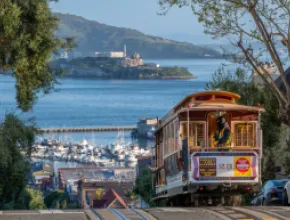CVBs want planners to know that it’s good to be small.
Many planners may think that if they are coordinating a smaller meeting, there is no need to reach out to CVBs located in their chosen destination for assistance. The perception exists that CVBs can and will only assist those planning larger meetings or trade shows.
But the truth is starting to get out: CVBs are more than willing to assist planners, whether it’s a group of 10 or 10,000. At the same time, bureaus are offering more value-adds and savings than ever these days.
"I’ve been talking to CVBs…and to be honest I’ve not been reaching out to bureaus when planning smaller meetings," says Bonnie Wallsh, chief strategist for Bonnie Wallsh Associates, a professional meeting management and training firm in Charlotte, N.C. "I’ll be considering them a lot more because I’m finding that they really know their destinations and can do practically everything. You should consider a CVB an extension of your staff."
Big Business
Carla Conner-Penzabene, director of sales for the Detroit Metro CVB, says that small and midsized meetings represent 70 percent of the city’s business.
"We represent every hotel in our region, not just the big convention hotels," she says. "More properties are sized for these groups than for the big trade shows. The truth is that the vast majority of meetings held in Detroit are 100 or 150 rooms a night or less. If you chart out a graph, it’s easy to see that small meetings cannibalize everything else."
Conner-Penzabene notes that since these smaller meetings make up the bulk of event business in Detroit, the bureau has a keen interest in helping planners make these meetings as successful and headache-free as possible.
The continued economic turndown could be seen as one of the reasons that small groups are getting more attention. But for the most part, CVBs have been available for planners of smaller events for a long time.
"We’ve continually fought the perception that CVBs just won’t help small groups," Conner-Penzabene notes.
Paul Miller, director of convention sales and service for the Sacramento [Calif.] CVB, says that planners who think their groups might be too small to justify working with even a second-tier city CVB are missing out on valuable resources.
One such resource is a complimentary site inspection, which isn’t just reserved for convention planners.
"We’ve brought in planners when they’ve told us that they’ve narrowed it down to two or three destinations," says Nikki Nicholson, vice president of convention sales for the New Orleans CVB. "Our services are available to groups with 10 rooms on peak night or greater."
Another valuable resource is the knowledge that the CVB has of the destination.
"If a planner goes directly through a hotel, they could be missing some critical information that could directly affect their meeting," Wallsh says.
While hotels might know about bigger events in a city and what’s going on in their immediate location, they might not be the best source on important details like public transit offerings, political goings-on, unique off-site option ideas and other critical elements.
Plus, going directly through a venue means that planners miss out on free marketing for their event. That’s worth repeating: free marketing.
The New Orleans CVB has a vice president of client relations who assists small-events planners with everything from developing microsites to save-the-date ideas to complimentary conference materials. Nicholson says that the CVB puts together brochures on free things to do while attendees are convening in the Big Easy. The bureau will also produce unique videos and arrange special photo shoots.
Wallsh has some advice to help small events planners get the most out of their experiences with the CVBs.
"Give them as much information as possible," she recommends. "Outline the objectives of the meeting. Give them a profile of attendees, your budget and past history: where you met before, what worked and what didn’t. This will get the CVB involved and excited."
Additional suggestions: Be as flexible as possible with meeting dates, note any hotel brand preferences, find out what is going on in town when the group is meeting and any political issues that may pose problems. All that is advice that’s not all that different for those planning an event for thousands.
"The number one rule is to be open and just listen to the bureau’s suggestions," Wallsh says. "They want groups to be happy, no matter what their size."






